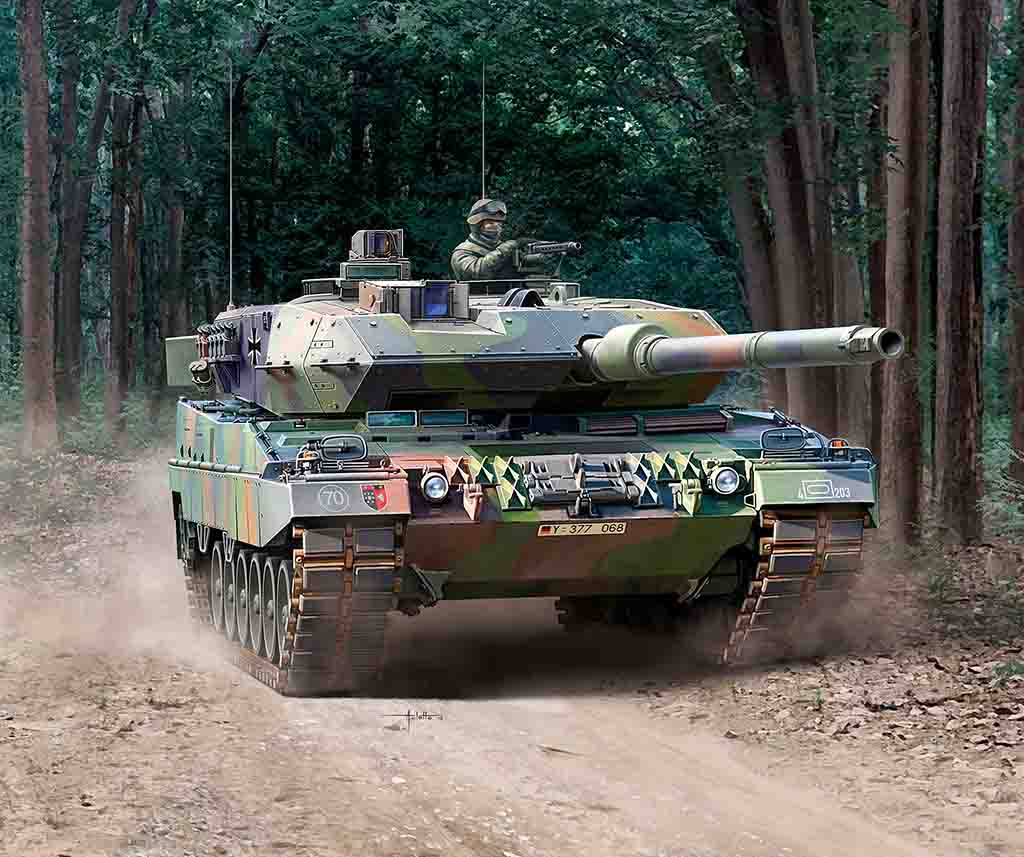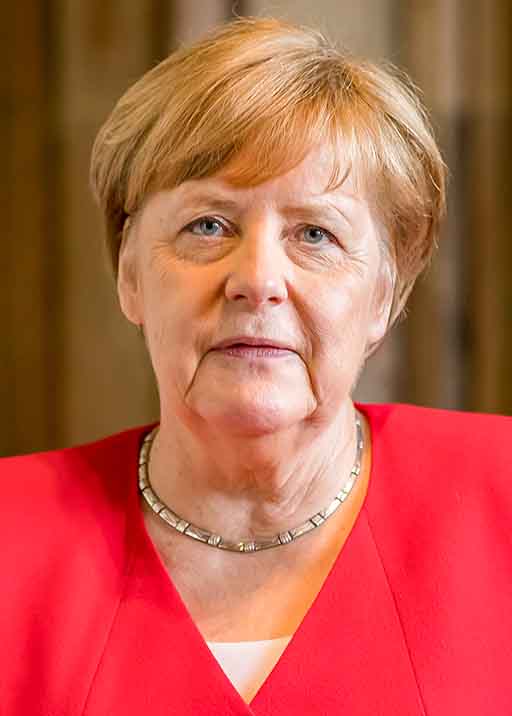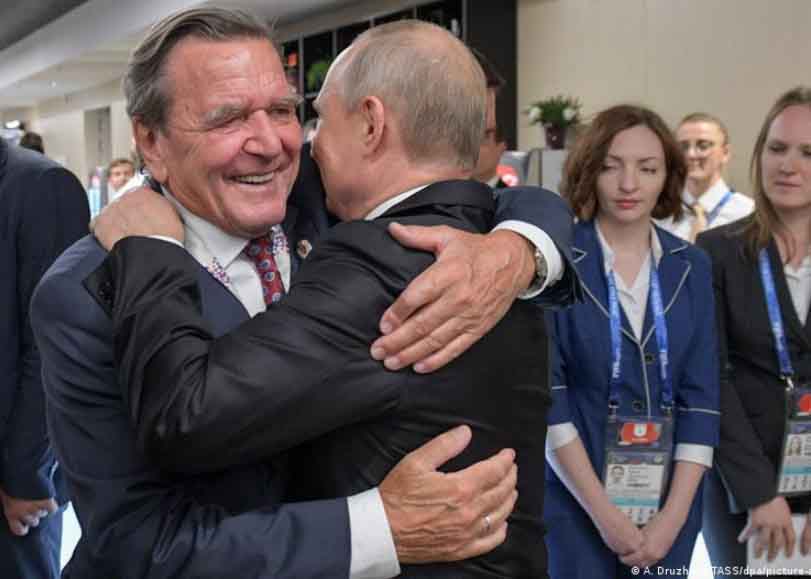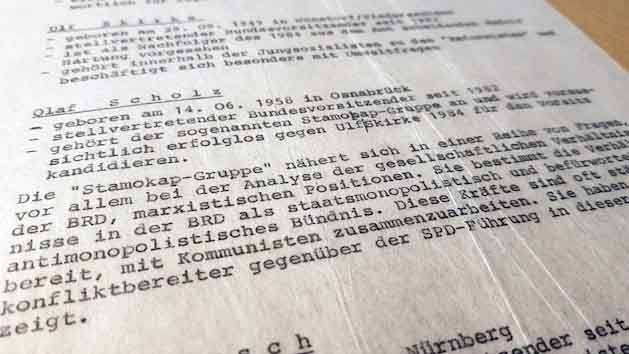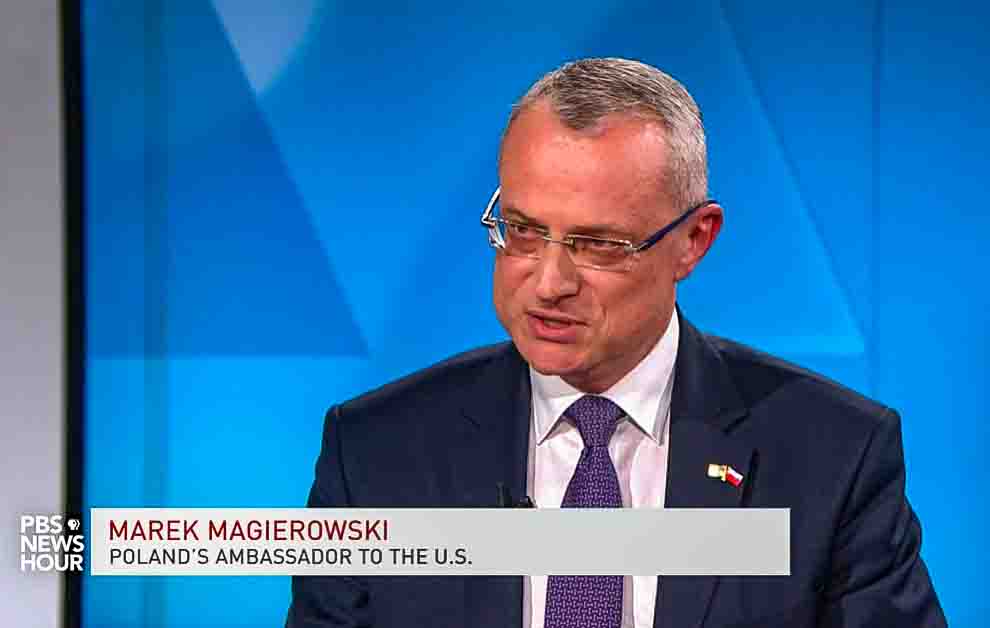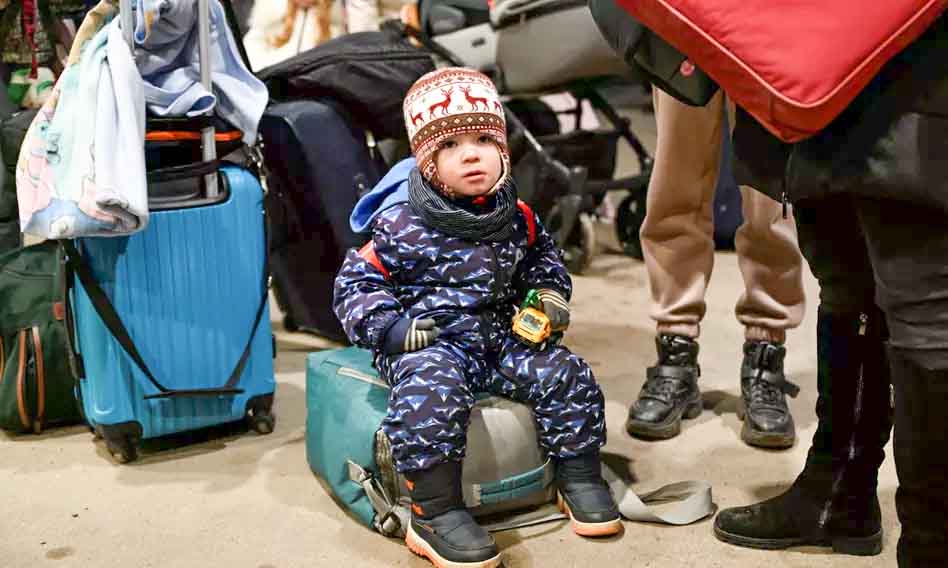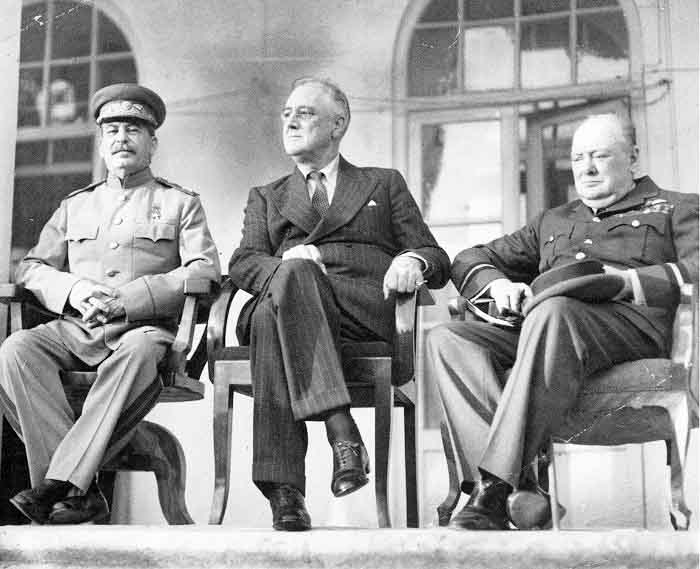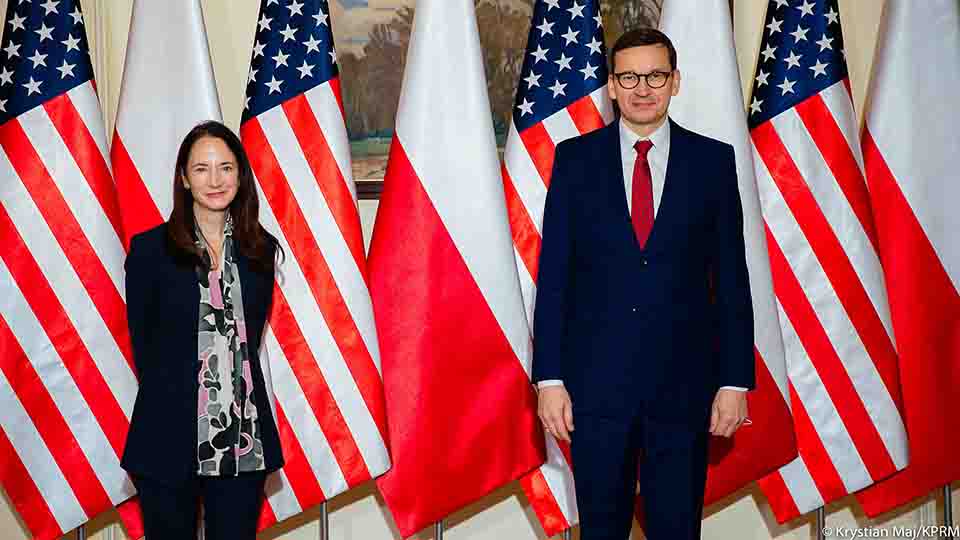The war is getting closer to the Polish borders and everything indicates that no diplomatic talks are able to stop this aggressive imperial adventure by Russia.
Putin recognized the independence of the Donetsk and Luhansk People's Republics by breaking international law once again, and the European elite and its diplomacy still believe in the project of cooperation with Russia from Vladivostok to Lisbon. [It took several days from the time of the writing of this article until publication and, meanwhile, Russia attacked Ukraine with full force. —Ed.] What will happen to Europe next? Will Germany stop feeding us pro-Russian demagogy and cynicism?
Europe and Poland are not prepared to militarily oppose Putin. We observe with great concern the conduct of European policy around Ukraine. However, the most astonishing are the reactions of our EU and NATO partners, Germany and France, in the face of the threat from Russia. The strategic Russian-German partnership is becoming more and more visible and takes the form of concrete political decisions by Germany, making it difficult for other NATO allies to assist Ukraine. Germany is one of the largest arms producers in the world, and it is sheer hypocrisy to withhold Germany's consent to the supply of weapons from Estonia to a state that is preparing to defend itself against the aggressor.
As we wrote earlier in the pages of Kuryer Polski, in the articles: "In the shadow of Teheran" and in two parts "Today Georgia, tomorrow Ukraine, and then maybe it's time for my country..." the dark scenario we have long warned against - construction of the Nord Stream 2, Russia's gas blackmail pipeline. The billions that Putin has invested in the European gas infrastructure, as well as the money "invested" in former Western politicians and lobbyists, give Putin the tools to shape Russian policy in other European countries.
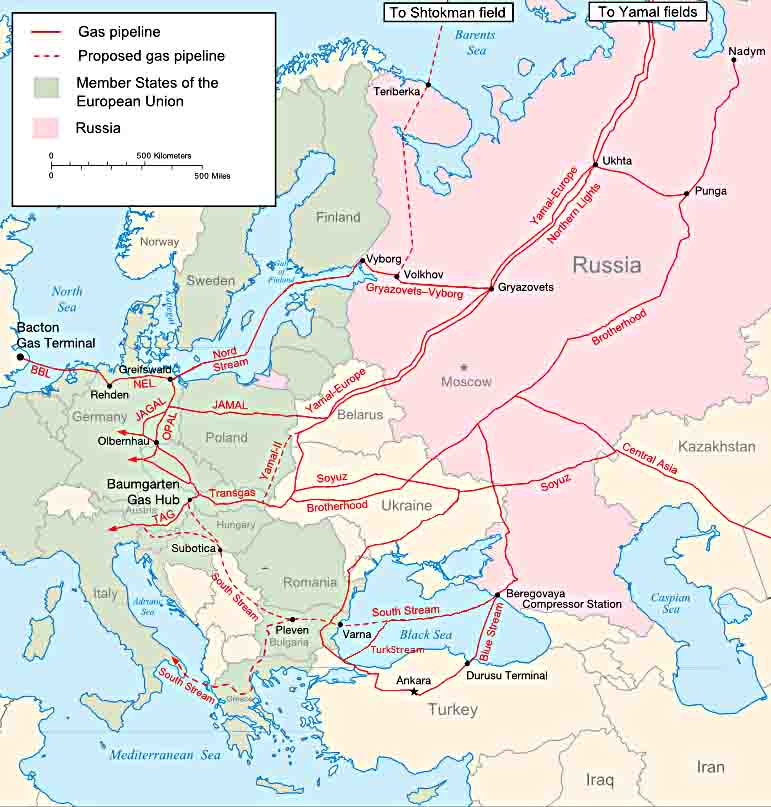
A map of pipelines from Russia (Source: Wikipedia)
For many years Poland has been determined in its support for the Ukrainian road to integration with Europe and the West. Poles consistently oppose further acts of aggression by Russia, such as the illegal seizure of Crimea in 2014, which was a breach of the Budapest Memorandum on Security Guarantees — an international agreement signed in December 1994 in Budapest, under which the United States, Russia and the United Kingdom undertook to respect the sovereignty and territorial integrity of Ukraine and to refrain from any threats to use force against its independence and territorial integrity.
Today our vote is on the side of our Kiev neighbors. We are on the side of the Ukrainian love of freedom, democracy, security, and the right of Ukrainians to sovereignly decide about the fate of their nation. We are also on the side of a peaceful coexistence rather than threats with the troops gathered at the border of Ukraine. These are values that for centuries had and still retain their real meaning in this part of Europe.
From Lisbon to Vladivostok — Putin's great geopolitical concept
On June 22, 2021, on the 80th anniversary of Nazi Germany's attack on the Soviet Union, the German center-left newspaper Die Zeit published a text signed by Vladimir Putin urging Europeans to abandon the US as a strategic partner and ally with Russia.
Putin recalls the idea of General Charles de Gaulle about one Europe from the Atlantic to the Urals and refers to the extension of this idea: Europe "from Lisbon to Vladivostok". "We believe in Europe from Lisbon to Vladivostok!" — this is a statement by President Emmanuel Macron before his meeting with Vladimir Putin on Brégançon Island off the French Riviera. The French president announced that he wanted to create new foundations for "security and trust" in the relations between the European Union and Russia. Putin, who wants to be the leader of a great space, from Vladivostok to Lisbon, proposed: "the axis Paris-Berlin-Moscow — this is the beginning of Greater Europe". The most important tool for implementing this policy is the German-Russian Nord Stream (NS) geopolitical project, which is destroying European solidarity and is lying at the bottom of the Baltic Sea.
The Three Seas in light of Putin's concept.
The Three Seas region is a geopolitical project of the countries lying between the Baltic, Black and Adriatic seas, encompassing most of the EU member states from "Europe after 1989", that is the part of Europe that fell victim to the Soviet conquest at the end of World War II and suffered for the next 45 years, not only because of the political domination of the Soviet Union, but also because of the lack of development that continues to hamper its economic growth.
The aim of this project is to develop and underpin the region, so that it becomes in fact and not only in theory, a real part of the integrated European market, rather than just an economic base for Germany. Three Seas leaders are seeking US involvement, not only as a source of investment capital, but also as a strategic guarantor of the project.
The emphasis of the Three Seas Initiative on building new energy infrastructure has gained particular importance in connection with the debate on the Nord Stream 2 gas pipeline. The energy infrastructure in the Three Seas region, a relic of the Soviet era, has made the region, along with Ukraine, dependent on Russian gas while access to other gas sources is relatively difficult. By giving Russia the ability to export gas directly to Germany, bypassing Central Europe, the Nord Stream 1 and 2 gas pipelines strengthened Russia's position in order to gain a strategic advantage over the Three Seas region.
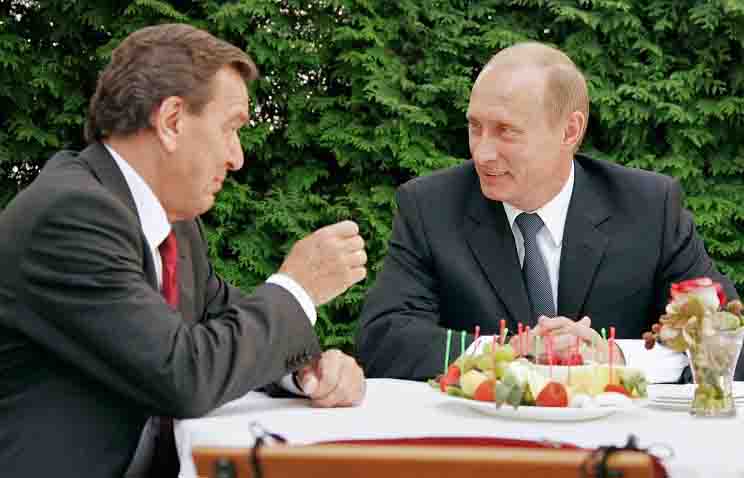
Gerhard Schroeder and Władimir Putin (Source: Wikipedia)
Agreement between Germany and the USA on Nord Stream 2
On July 21, 2021, the German Ministry of Foreign Affairs and the US Department of State announced a Joint Statement of the United States and Germany on Support for Ukraine, European Energy Security, and our Climate Goals. It presents the arrangements made by Berlin and Washington regarding the conditions for the effective withdrawal of American opposition to the Nord Stream 2 gas pipeline.
Despite the relatively harsh rhetoric towards Russia contained in the joint statement, the agreement does not contain binding obligations to react in the event of aggressive behavior on its part , nor does it introduce real instruments to limit its destabilizing actions and to reduce the negative effects of the launch of NS2. The agreement confirms that the US is treating cooperation with Berlin as a priority.
The arrangements are favorable for Germany, which has achieved its goals at relatively low cost. The agreement between the USA and Germany on NS2 shows the consistent implementation by the Joe Biden administration of a policy different from its predecessors with regard to the gas pipeline and the resignation from opposing its construction. It also emphasizes the importance for the US of improving relations with Germany, at the expense of American relations with Ukraine, Poland and some other countries of Central and Eastern Europe.
The dependence of Germany and Europe on Putin's gas.
Germany found itself in a difficult situation due to the Ukrainian crisis: it obtains half of its natural gas from Russia. The course for dependence on Putin's energy power was set during the reign of Gerhard Schröder, who said: “Europe's competitor is not Russia, but America and Asia. The condition for the European Union's success in global competition is an alliance with Moscow ”.
Germany and Europe are heavily dependent on energy imports from Russia. This mainly applies to natural gas, crude oil and hard coal. In the face of deteriorating relations with Russia, warnings are louder that the Russian government may use a possible suspension of supplies as a political weapon on a large scale, as is currently happening.
According to DW, since 2012 the share of Russian natural gas supplies alone has increased from 40 to 55 percent — an increase of more than a third. In the case of oil imports too, Russia's share increased by 10 percent over the same period: from 38 percent to 42 percent.
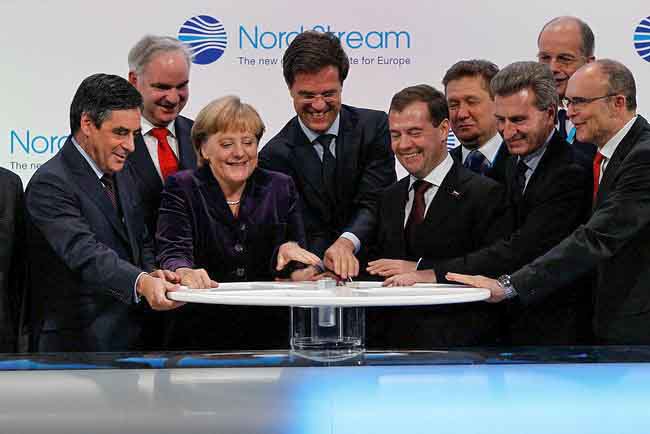
The signing of the agreement about Nord Stream (Źródło: Wikipedia)
In recent weeks, more and more tankers with liquefied natural gas (LNG) are going from the USA to Europe. However, unlike neighboring countries such as the Netherlands, Germany does not have a single LNG terminal on its coast. Instead, they have the Nord Stream 2 gas pipeline, which is already filled with Russian gas and awaiting an operating permit. In the case of Nord Stream 2, German policy regarding energy dependence on Russia becomes particularly clear: at one time, it is presented by the Foreign Minister Anna Baerbock as a potential instrument of sanctions against Russia, another time it is downplayed by Chancellor Olaf Scholz as a purely private and business project.
Business and NATO cohesion
“The German Chancellor, Olaf Scholz, has just stated that the certification of the Nord Stream 2 gas pipeline is suspended." This is positive news, but we expect much further steps.
"From the very beginning of the Nord Stream 2 project, Poland was categorically against placing Germany's gas interests over the security of the whole of Europe. The effects of the continent's dependence on Russian energy supplies are felt today by all EU residents,” said Prime Minister Morawiecki. However, the German elite continued to think positively about the strategic partnership between Germany and Russia.
Thomas O'Donnell, energy market analyst and lecturer at the private Hertie School of Governance in Berlin, describes in an interview with PAP the attitude of German parties to cooperation with Russia. "Some politicians in Germany are so obsessed with Moscow, that they do not notice the existence of Poland," he says. "They believe that Russia can be for Germany what Mexico is for the USA: a country with a skilled workforce, where it is possible to cheaply produce, exploit natural resources and cooperate in the military aera" — explains the expert, stating at the same time that Christian Democrats are also politicians who are well aware of the threat posed by Russia and are unequivocally in favor of the transatlantic option.
Former German Defense Minister Annegret Kramp-Karrenbauer presented the concept of a new order in transatlantic relations between the USA and Germany. This deal clearly subordinated Germany to America, in return for giving Germany a free hand in European affairs and maintaining the political and strategic order in this part of the world. In addition, Angela Merkel's prophesied successor proposed the creation of the largest free trade area between Europe and the United States. A similar voice was presented by the German Foreign Minister Haiko Maas in "Time for a new beginning of the transatlantic partnership" at Die Welt am Sonntag. Everything shows, however, that the pro-Atlantic group did not receive significant support in the last elections. The orientation towards Russia has definitely dominated German politics.
Has America noticed?
At this point, it's time for some important questions: Has America noticed this change?
Recall that on July 15, 2021, there was a bilateral meeting in the US, and Merkel was the first European leader to meet Biden in the White House. During the meeting of Biden and Merkel, the issues of US-German cooperation in climate policy, the fight against the pandemic, and the strengthening of Ukraine's sovereignty and territorial integrity were discussed, but these were arrangements with the old German government. The situation has changed.
Are we sure the Biden administration is registering the changes in the situation in France and Germany? How do 5,000 helmets for Ukraine fare in terms of cooperation within NATO and adherence to article 5 of the Washington Treaty?
The best comment on German loyalty to NATO are the following quotes: "The German government supports the construction of Nord Stream 2, arguing that it is "of a business, rather than political nature." And "the thought that Germany supplies weapons that can be used to kill Russians is very difficult for many Germans," said Dr. Marcel Dirsus, from the Institute for Security Policy at the Christian Albrecht University of Kiel (ISPK) in an interview with Deutsche Welle.
Will the idea of a German-American agreement which, at the price of Germany's abstention from competing in the American-Chinese rivalry on the Chinese side, win the favor of Germany and — through it — the tacit favor of Russia? We can see that Germany and Russia have different plans in this part of the world and the American plan needs to be revised quickly. We will receive an answer to these and other questions in February.
Time for an offensive by Polish diplomacy in the Three Seas format. Time for US lobbying forces to act. An example is the joint letter of the President of the Polish American Congress and the Ukrainian Congress Committee of America of February 2, 2022.
Time for coordinated action by diplomacy, journalists and the organization of the Polish and Ukrainian diaspora. The initial changes towards strengthening of the NATO's eastern flank are already visible. 1,700 American commandos landed in Rzeszów. The French and Americans also reach Romania, but is that enough? The pressure of the Polish American community on Biden's administration is necessary.
Translation from Polish by Andrew Woźniewicz.






